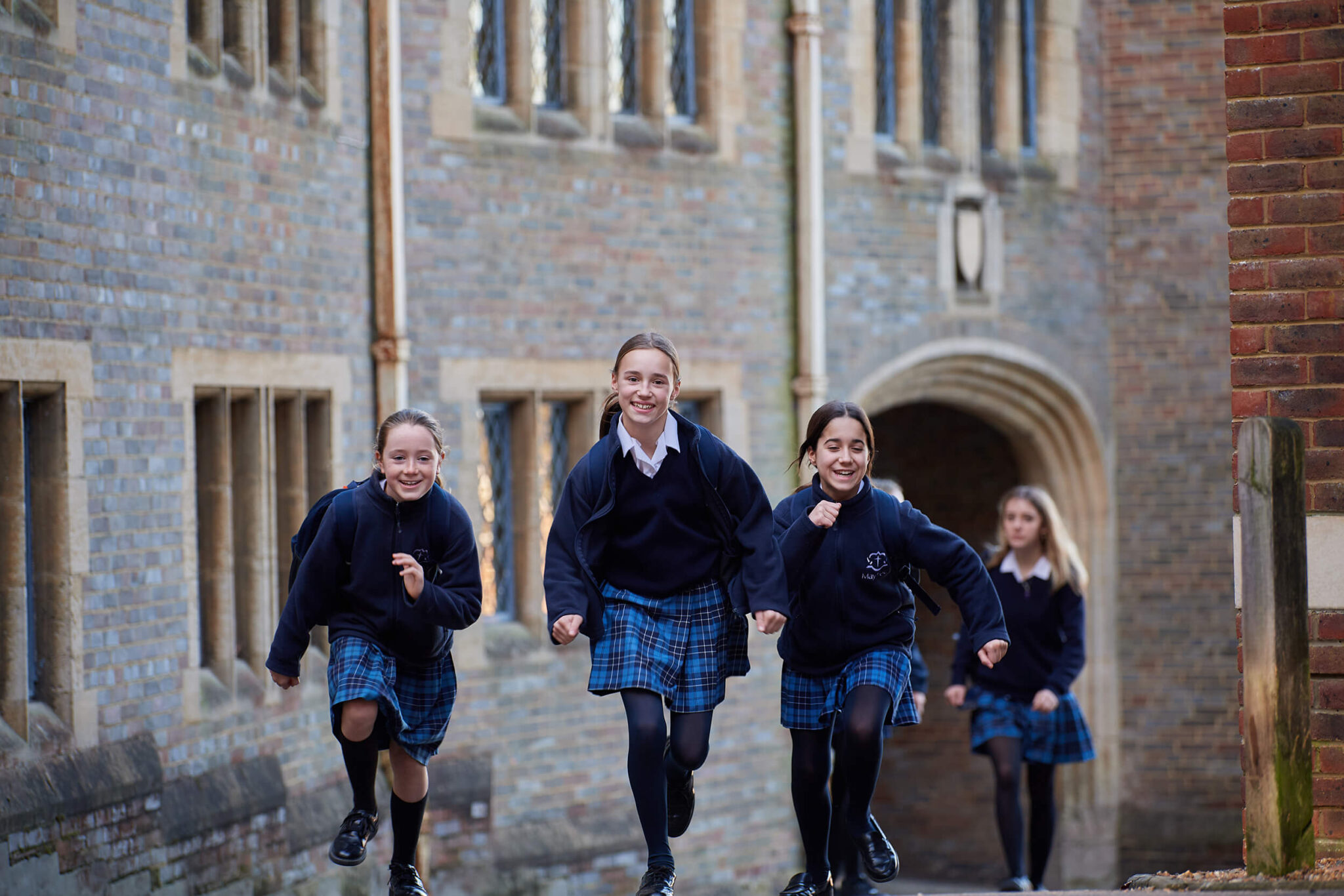Absolutely Sussex finds out more about environmental success stories at Mayfield Girls
Three Sixth Formers from Mayfield Girls have won a national engineering accolade for their plan to reduce carbon emissions and make Mayfield village more sustainable, placing second out of 140 Schools from across the UK in this year’s ICE CityZen Competition.
Budding engineers Megan, Elizabeth and Isabella wanted to come up with a solution to tackle the problem of rising energy costs for the residents, local businesses, and their school in Mayfield. The challenge they faced was how to reduce the energy costs required to heat the historic school and local buildings – many of which are listed – whilst at the same time cutting carbon emissions. The solution? Using geothermal energy, which is renewable, in the form of ground source heat pumps, providing an innovative and non-invasive solution to the problem. The girls’ proposal involved pumps being installed, with excess energy sold to local residents and businesses, improving the sustainability of the village in the process.
CityZen is a UK-wide competition in which student teams learn about civil engineering through completing virtual game challenges. They then take the lessons they’ve learned and apply them to their own civil engineering proposal and submit a video entry explaining their idea.

Mayfield’s Head of Physics, Dr Darragh Corvan, says: “We are delighted Megan, Elizabeth and Isabella have been recognised for their innovative project proposal. At Mayfield, we encourage all our students to pursue their passions and we actively encourage girls to study STEM subjects and pursue careers in engineering, which have traditionally been male dominated. We aim to break the stereotype by providing a range of activities and projects to support the girls’ learning within an environment in which it’s encouraged to experiment and make mistakes, in order to learn and progress. We congratulate the girls on their achievement.”
At Mayfield School, their motto – Actions not Words – could not be more appropriate when it comes to caring for the environment. From Farm Club to Earth Hour, from recycling to the hive of Buckfast bees, the school encourages a number of important environmental initiatives to ensure the girls are educated about climate change and encouraged to develop and support initiatives to address this important issue.
MESSy
MESSy – Mayfield Environmental and Sustainability Society – is at the heart of the school’s environmental efforts. Run by the girls, MESSy works hard to educate their peers, staff and parents alike. MESSy runs a number of projects with a local theme, including looking after the school’s very own bee colony. As well as providing honey, which is sold to raise funds to maintain the bee colony, the girls can learn about the bees’ life cycle and gain a greater understanding of these amazing insects. The bees also pollinate lavender, which is used to make lavender bags, which are sold to support the bee colony, creating a virtuous circle.
Alongside this, ‘the plant a tree’ project has involved girls growing trees from seed, selling them locally, and as the trees mature they capture and store carbon, as well as improve bio-diversity locally.
Mayfield Earth Hour
MESSy also promotes Mayfield Earth Hour around the school, to coincide with the global WWF Earth Hour in March. All non-essential electrical items, including lights, are switched off for an hour to save electricity and demonstrate how it is possible to dramatically cut energy usage. For many years, the school has been using low energy and LED light bulbs, there are light sensors in areas of low footfall, and double and triple glazing has been installed in Mayfield’s historic buildings. A recent project involved the girls scanning the school’s buildings with infrared cameras that detect heat loss and plans are now in place to address this.

Zero food waste
Promoting recycling is at the heart of MESSy’s activities and the school has worked hard to reduce waste and recycle where possible. An ongoing initiative is Mayfield’s zero food waste project that aims to minimise food waste. Food waste is weighed daily, in order to monitor waste levels, and is used to make bio-fuel
In the kitchen, the chefs aim to reduce waste by re-purposing the food. Broccoli stalks are used for salads and unwanted peas are used to make pea guacamole. Ketchup is sourced from tomatoes that would otherwise have gone to landfill. Other initiatives in the pipeline include a locally sourced school lunch, where all the food is sourced from within a 30 mile radius of the school.
Building with sustainability in mind
Sustainability is also a key component of school projects and this is true of the new Health and Wellbeing Centre, currently under construction. The building utilises efficient and sustainable cross-laminated timber (CLT) for its structure. The elevations of the centre will be constructed from limestone, in a new product based on brick dimensions and matching the limestone of the Old Palace, the earliest school building, dating back to the 14th Century. The natural stone bricks are low in embedded carbon, with 55% less embodied CO2 than clay bricks and are fully reusable and recyclable.









